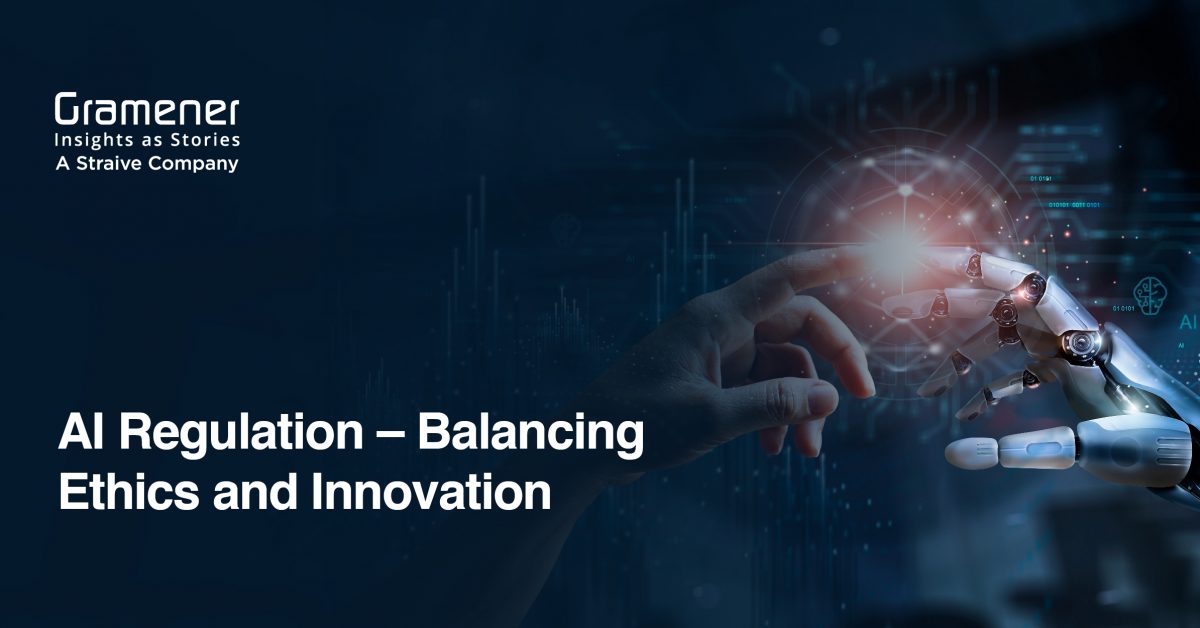Okay! Let me start with this short story. A Data Science firm dedicated to enhancing educational quality provided insights to educational institutions based on data-driven analytics.
One of the schools utilized the insights provided by this firm and terminated teachers whose students’ pass percentage was lower.
Unfortunately, one of the dismissed teachers was instructing students who struggled academically. What went wrong in this unethical and immoral decision-making? The answer is the ethical considerations of AI in decision-making.
Table of Contents
The Need for Ethical Boundaries
Despite its potential to revolutionize various sectors, AI must be regulated to prevent misuse and uphold moral standards.
However, regulating AI poses numerous challenges, ranging from ethical dilemmas to issues of security, accountability, and transparency. So, how can the Governments indulge and provide a “safe AI” is a current hot topic.
Government Initiatives in AI Regulation
Governments are now setting up a stage with different AI regulation rulebooks and approaches, like the UK’s “light touch” and the EU’s tougher AI act that segregates artificial intelligence according to use case scenarios, based broadly on the degree of invasiveness and risk.
The Indian government initially expressed reluctance to regulate AI during the 2023 budget session but has since reconsidered its stance.
This shift comes in response to growing concerns regarding privacy, system bias, and potential violations of intellectual property rights. Governments need to provide guardrails to support ethical AI development.
Public-Private Collaboration in AI Governance
Private players also have a role to play in shaping AI governance. Initiatives like Microsoft’s collaboration with OpenAI demonstrate the potential for private firms to contribute to regulatory frameworks.
Microsoft’s “Governing AI: A Blueprint for India” outlines five key steps for ensuring responsible AI governance, including safety frameworks, legal frameworks, transparency promotion, and public-private partnerships to use AI to address the inevitable societal challenges that come with new technology.
This approach can prevent the overregulation of AI and ensure smoother workflows for Data Science firms.
Private Sector Responsibility
Private firms should also focus on implementing their own safe rules when they work on AI before or after the government implements AI regulations.
Such as considering the societal impact of AI applications they build, implementing robust security measures to protect AI systems, being accountable for all the AI applications they develop and deploy, and ensuring that the functioning of AI models is understandable to relevant stakeholders.
Especially when using Generative AI tools like Chat GPT, they need to disclose the content that was generated through AI, publish summaries of copyrighted data used for training, and design the model to prevent the generation of illegal content.
Fostering Innovation through Collaboration
In conclusion, effective AI governance requires collaboration between governments and the private sector.
Public-Private Partnerships (PPPs) have already yielded promising results in India, with initiatives like ‘SEEDS’ and ‘My Gov Sathi’ showcasing the potential for innovation while addressing ethical and societal concerns.
AI governance can navigate the delicate balance between innovation and ethical considerations by fostering cooperation and shared responsibility.
This blog is written as part of our CoCreate Internal Blog Writing Competition to foster innovation and collaboration. Participants from technical teams share ideas and solutions, showcasing their creativity and expertise. Through this competition, we aim to highlight the power of collective intelligence and the potential of co-creation in solving complex challenges.

